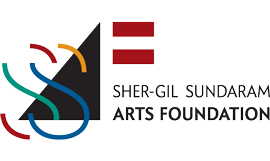Grant Recipient
PANKTI DESAI
Title of the Project
CONSTRUCTING AN ALTERNATIVE GUJARATI CULTURAL IDENTITY: THE CASE OF RE REVOLUTION LITTLE MAGAZINES
Pankti Desai’s project, Constructing an Alternative Gujarati Cultural Identity: The Case of Re Revolution Little Magazines proposes to research and document the poetics of dissent as expressed through four literary little magazines in Gujarati under the banner of Re Math (or Re Revolution). Published by poet Chinu Modi and others between the 1960s and 1970s, the four magazines under consideration are Re (1961–62), Kruti (1966–72), Unmoolan (1967–68), and Omeesium (1974–76).
Desai proposes that literary and cultural marginalisation and canonisation occurs with regard to how these magazines are historicised, such that the Re Revolution publications have been written out of history. Desai’s project will analyse the intersection of literary, non-literary, and visual texts in these magazines, together with their material modes of circulation and the intellectual milieus in which were they produced and situated.
With the support of the grant, Desai will digitise the complete collection of the four little magazines with the aim of making them available for public access online. This research stems from Desai’s ongoing work in the field of Comparative Literature, with a focus on modernist trajectories of poetry and literature in Gujarati and English. Desai proposes to examine the ways that little magazine movements in Gujarat contested prevalent notions of nation, culture, literature, and articulated the need for alternate discourses. A rich cultural and intellectual milieu was produced by the coming together of poets, writers, and artists to publish, edit, and contribute to little magazines in Gujarati.
The jury felt that Desai’s research initiative promised a resurrection of a neglected history within the larger literary and cultural history of Gujarat. The cluster of magazines she proposed to study deployed a language of satire and ridicule towards older traditions and literary forms, and were thereby committed to a politics of irreverence. Desai’s intent is to closely examine the Re Revolution publications by delineating its various hierarchies, confrontations, and antagonisms. This is an important intervention into studying magazines as a cultural time-space, and a departure from the usual descriptive approaches or the focus on the literary biographies of individuals.
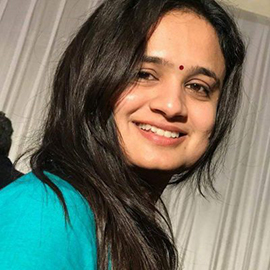
Pankti Desai is Assistant Professor at Dr. S. & S. S. Ghandhy Government Engineering College, Surat, Gujarat. She has a PhD from the SNDT University, Mumbai, and a Masters in English and Comparative Literature from Veer Narmad South Gujarat University, Surat. She is deeply interested in modernist Indian literature, translation studies, comparative literatures, literary historiography, and cultural studies. Her research papers have appeared in various journals including Kavya Bharti and New Quest. She has been documenting and researching little magazine movements of Gujarat since 2015.
Jury
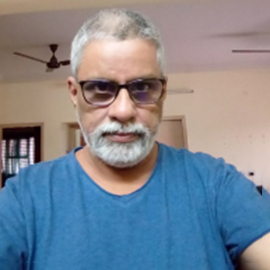
M. Madhava Prasad is Professor of Cultural Studies at the English and Foreign Languages University, Hyderabad. He is the author of Ideology of the Hindi Film: A Historical Construction, Cine-politics: Film Stars and Political Existence in South India, and essays on Indian culture, society, and politics. Among his recent publications are a set of symptomatic readings of the politics of language in colonial and postcolonial India, and the role of clothes in the politics of representation.
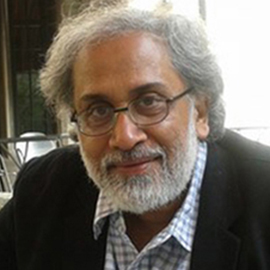
Ashish Rajadhyaksha is a film historian, cultural theorist, and occasional art curator. He is co-editor of the Encyclopaedia of Indian Cinema (published in 1999 and 2001 by the British Film Institute). His books include The Last Cultural Mile: An Inquiry into Technology and Governance in India (2011) and Indian Cinema in the Time of Celluloid: From Bollywood to the Emergency (2009). He has curated a number of film and art events, including (with Geeta Kapur) Bombay/Mumbai 1991–2001 for the exhibition Century City: Art and Culture in the Modern Metropolis (Tate Modern, London, 2002); You Don’t Belong (China/Hong Kong, 2012/13); and Tah-Satah: A Very Deep Surface: Between Film and Video (Jawahar Kala Kendra, Jaipur, India).
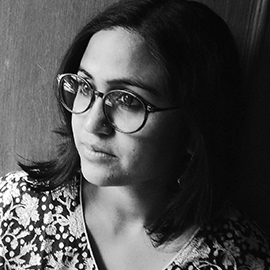
Sneha Ragavan is Senior Researcher and Projects Lead for Asia Art Archive in India, based in New Delhi. Together with colleagues, she works on projects to digitise artist archives, creating online bibliographies, editing publications, and organising workshops and seminars on art history and writing in the region.
